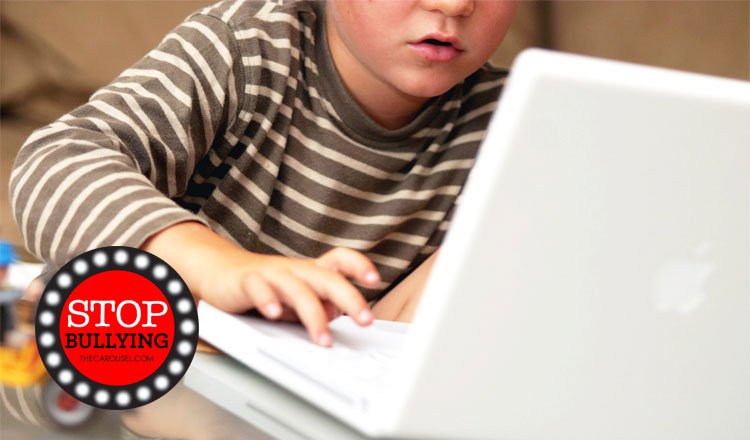He fits perfectly in the circle of my arms – he always has, right from the very first moment. Now at 15 with those long lanky arms and legs, the awkward not-quite-full-height growing body still fits and still finds its way to the comfort I give as a mother when life takes a turn.
As the sun rose and I started the job of shaking and waking sleeping teen boys, ready for the school day ahead, I hoped that when the 15-year-old rolled over and grunted, ‘Morning Mum,’ that I would see a happy face. It used to be happy – in fact, it used to be that the moment I arrived to start the gentle waking into the new day he was out of bed like a shot, showered, dressed, guinea pigs fed and eager to get on the bus. Not now. In 12 short weeks life has changed.
Year 9 at school – known by parents and educators alike as a difficult social year. Not the cute little kids and not the nearly-finished big kids but the difficult ‘middle-child’ of the school. Mix that with raging hormones and rapidly developing independence, a flourishing online and offline social life – and the scene is set for some explosions and some self-discoveries that take work, patience and skill to work through.
12 weeks ago, after a difficult year fraught with the usual teen friendship ups and downs a significant issue happened. One that left a once close friendship in tatters. Despite careful management with the hope that the buzz would settle to a hum and then settle into silence, gossip, rumours fanned the flames and the drama escalated.
This morning, the waking was slow, the eyes were red from a late-night secret cry, hidden from the world of peers – but not me. His heart is my heart – just walking around on the outside of my body. “Ready for school?” I ask and the tears well. “Get up and going and see how you feel.” He showers and dresses and arrives in the kitchen as I clear last night’s dinner party remains and start the process of preparing enough food for the day for an army of starving boys. You see, it was his birthday yesterday and I noticed, that for periods of time, while the family was here, that he disappeared and then reappeared – tense, downcast but present.
I’m anxious as I survey him carefully out of the corner of my eye to see if a bit of movement has created some positive momentum. But the moment I turn to him and ask if he’s going to make it through the day, the tears fall – first his and then mine. He’s emotionally exhausted – spent. The thought of getting through another day of rumours, sly remarks – cleverly disguised when a teacher is present, being put down and shamed is too much. “Take your uniform off and go back to bed for a while.” I fold him into my arms and wish that he was little enough to hold on my lap, sheltered from the nasties that life sometimes delivers. But this teen-time is all about preparing him for the rigours of adult life, about standing up to bullies and standing up for himself. Tough, so tough letting the learning happening and not getting on my mother-bear roar and claws and ripping apart the source of the unhappiness.
Covert bullying – has it happened to you or maybe to one of your children? It can be that for a long time you’re unsure if it is actually happening. You question whether the cloaked meanness was real or just perceived. You promise yourself that the next time you’ll call them out but for a range of self-protective reasons, you don’t. And so, it goes on and in some ways, you feel complicit. When other friendships are attached to the deliverer of the sneaky bullying there’s a fear that if you call out the bully you might also lose some of the attached friendships, so you say nothing – or you say little and the nastiness, insidious, cancerous continues and spreads. And what if, when it was all beginning you were part of the problem? You were reactive or part of the initial inflammation of the issue? Then it makes the snowballing consequences – even in a small way – seem partly your fault and so you allow what was little ripples to amplify into an all engulfing tsunami that threatens to wash away every vestige of happiness.
And so it is that today, we regroup. We have a home day – a day far removed from the source of the misery, a day of recovery. Below the surface though, the wheels are turning. We don’t want to stir the coals to life again but we know that now we have to put an end to this long and insidious draining of happiness with some strong measures taken right at the top of the chain of authority. My gangly 15-year-old deserves to leap out of bed, to have friendships not ruined by malicious lies and gossip, to experience the normal emotional upheavals of teen life. My man-child is vulnerable, he’s not fully equipped emotionally or strategically to deal with overwhelming happiness draining events that are outside the scope of ‘normal’ teen dramas.

Here are my next 6 steps that every parent should know and follow if their vulnerable teen is having a torrid time:
#1 Take it seriously – the ramifications of social issues for teens can be severe. Listen carefully, get the details and don’t dismiss the importance of what’s not said – like changes in mood, sleeping and eating.
#2 Get perspective – rein in the mother-bear and think through the solutions and their consequences. Even the best laid path to a solution can have its own consequences – out of the frying pan and into the fire is something to avoid.
#3 Identify allies – within the school system and start the conversations early. All too often, when covert bullying is involved teachers are unaware. Be objective, stick to the facts and ask for help, suggestions and observations.
#4 Be prepared to take it higher – this is your child so if their happiness is impacted for significant periods of time and the steps above are not working move up the chain of authority. It’s not always comfortable but can become necessary – which means stepping on toes. Do it.
#5 Get help – who’s an outside person who can talk to your child about their experience? School counsellors, chaplains or agencies all have specialised talk- therapy approaches that help a child to gain clarity and perspective.
#6 Stay alert, stay connected – don’t assume that because it’s not being talked about that it’s gone away. Ask gently and often how your child is going. Read the non-verbals like becoming withdrawn, moody, changes in eating and sleeping, being secretive.
I know that ‘this too shall pass’ – it is true of all things in life but I want it to be a positive learning from a negative experience. And that’s going to mean stepping towards my young man even when he holds me at arms’ length, stepping up my advocacy and defence in productive ways – looking for solutions and not drowning in the problem and finding my own support and voices of reason to guide me and hold me steady as I do the same for my young person. It is a strange and wonderous thing this parenting journey – and it appears that the learning never ends.







